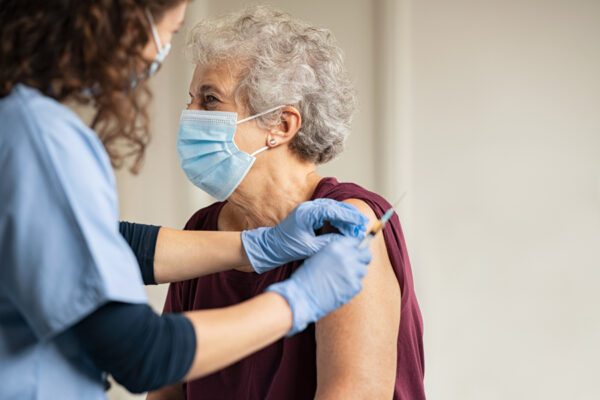Horton is partnering with vendors to provide antibody testing. This voluntary test can help identify the presence of an immune response or antibodies to the virus that causes COVID-19. Results may indicate that individuals have some degree of immunity to the virus. There are no direct risks when taking the antibody test, but be aware that some people may not develop detectable immune responses to COVID-19. Antibody testing is intended to detect antibodies, not the infection.
What does the test do?
An antibody test measures the immune response or antibodies in an individual’s blood, which are disease-specific proteins called IgM and IgG. Your body makes these proteins when it fights infections, such as COVID-19. IgM antibodies usually appear detectable several days after infection and is an indicator of acute infection. IgG antibodies develop in most patients within seven to 10 days after symptoms of COVID-19 and remain in the bloodstream after an infection has passed. Antibodies for the virus can exist in the patient even if they did not have symptoms of the virus.
It’s important to know that some people may not develop a detectable immune response to COVID-19 in particular, those who are immunosuppressed or have mild infections. Additionally, antibody testing is intended only to detect antibodies to the virus, not to diagnose a recent or active infection. Also, the test cannot pinpoint the exact date of exposure.
How does antibody testing work?
Antibody testing isn’t a test checking for the disease itself, but a test to see whether your immune system has responded to the infection. When getting tested, an intravenous blood draw is performed by a technician to collect the specimen and then sent to a lab. Within approximately 1-3 days, your lab results will be available.
What does a positive result mean? Does it mean that I am immune?
A positive result means that there may have been antibodies detected from an infection with the virus that causes COVID-19. The test could also come back positive from an infection, past or present, that is a related virus from the same family of viruses, such as coronavirus, HKU1, NL63, OC43, and 229E. While it is a common belief that having antibodies present in your body is a sign of immunity and/or you are protected against COVID-19, doctors and scientists are still uncertain. This means that even if you tested positive for antibodies, you should continue to protect yourself and others.
Is the test approved by the United States Food and Drug Administration?
The antibody tests have not received full FDA approval. Still, they are approved for temporary use under the Emergency Use Authorization (EUA). Horton is only partnering with vendors that have received EUA. Due to rapid changes in the information provided about COVID-19, we highly recommend referencing the FDA and the CDC websites for updates.
Please visit the CDC website and the FDA website for updates and more information.
How accurate are the tests?
Antibody tests are highly accurate, but many on the market vary in quality. Horton has selected vendors offering antibody test options based on thorough clinical review, as quality care is a top priority and one of our core value propositions. The higher the sensitivity, the fewer false negatives a test will give. The higher the specificity, the fewer false positives. Through our antibody testing partnerships, these have a specificity of 99.6% and a sensitivity rating of 100%.
How much does the antibody test cost?
Prices vary based on vendor and are a direct bill back to the employer or can be individually paid by the participant. At this time, insurance companies are not covering the cost of onsite antibody testing. Convenience and consistency of onsite testing are two benefits to offering onsite events.
Interested in learning more? Please reach out to our Wellness team.
Material posted on this website is for informational purposes only and does not constitute a legal opinion or medical advice. Contact your legal representative or medical professional for information specific to your legal or medical needs.



